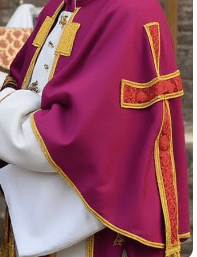November 12, 2024 – The Archbishop of Canterbury, Justin Welby, announced his resignation, a decision that has sent ripples through the Anglican Church and beyond. His announcement comes amidst criticism from a recent report that scrutinizes how the Church of England, under Welby’s leadership, handled allegations of abuse. This resignation marks the end of Welby’s 11-year tenure in a role considered to be the spiritual head of the global Anglican Communion, encompassing nearly 85 million members across 165 countries.
Background of the Controversy
Justin Welby, appointed as the Archbishop of Canterbury in 2013, has been known for his vocal advocacy on issues ranging from social justice to global poverty and environmental protection. Despite his widely respected leadership, the recent criticism focused on the Church of England’s handling of abuse cases has stirred significant debate about accountability and transparency within church institutions. A detailed report from an independent inquiry into child sexual abuse alleged that the church had inadequately responded to abuse allegations, leading to widespread calls for reform.
Welby expressed his sorrow over the church’s failures, acknowledging the pain and harm experienced by survivors of abuse. In a statement, he said, “I apologize unreservedly to those who have been failed by the church. My heart breaks for anyone who has suffered due to the actions or inactions of those within our community.” His resignation, according to sources close to him, stems from a desire to allow new leadership to restore trust and implement reforms that he believes are necessary.
Key Points from the Report
The report criticized several aspects of the church’s approach to handling abuse cases:
- Delayed Responses: The inquiry revealed delays in addressing complaints, often leaving survivors without timely support or resolution.
- Institutional Barriers: The report noted that survivors encountered institutional barriers that made reporting abuse difficult.
- Inconsistent Policies: The church was found to have inconsistencies in its safeguarding policies, which were not uniformly applied across dioceses.
The investigation placed particular scrutiny on Welby’s role, as he had been at the forefront of the church’s public efforts to address abuse. Critics argue that while the archbishop’s intentions may have been genuine, the lack of effective change during his tenure ultimately undermined trust in his leadership.
Reactions from Church Leaders and Members
Church leaders, both in the UK and internationally, have expressed a mix of sorrow and understanding over Welby’s resignation. Reverend Stephen Cottrell, the Archbishop of York, noted, “Justin has led the church with a heart for the poor and vulnerable. While this chapter closes, his legacy in other areas remains substantial.” The Archbishop of Sydney, Dr. Glenn Davies, echoed similar sentiments, stating, “This is a somber moment for the Anglican community, as we recognize both his achievements and the significant work still needed to heal and safeguard our church.”
Members of the Anglican community have also reacted strongly. For some, Welby’s resignation is a necessary step to restore credibility. “We must rebuild from here,” stated an Anglican congregant, “and ensure that the church truly becomes a place of safety and sanctuary for all.”
What Lies Ahead for the Church of England?
The resignation of the Archbishop of Canterbury leaves the church at a crossroads. In the coming months, the Crown Nominations Commission will be tasked with selecting Welby’s successor. While many speculate on who may take his place, one thing remains clear: the new leader will face an uphill challenge in addressing the public’s concerns about transparency and ensuring that survivors of abuse are properly supported.
The Church of England has also announced plans for comprehensive reforms to safeguard policies. These reforms include:
- Creating a Centralized Safeguarding Body: A new independent body will oversee the implementation of safeguarding policies across all dioceses.
- Mandatory Reporting: Policies are being revised to include mandatory reporting of all abuse cases to an independent body for investigation.
- Training and Support: Increased training for clergy and lay members will be mandatory to raise awareness and understanding of safeguarding protocols.
Welby’s Legacy and Future Plans
Justin Welby’s legacy as Archbishop of Canterbury is multifaceted. He will be remembered for his contributions to promoting dialogue across denominations, his commitment to social justice, and his work on global poverty and climate change. Many in the Anglican community recognize that his resignation does not diminish his achievements in these areas, but rather opens the door for further growth in the church’s mission.
As for his future, Welby has not publicly stated his next steps. However, those close to him suggest he may continue his work in the areas of humanitarian aid and interfaith dialogue. Sources speculate that he may return to work within nonprofit organizations or charities focused on reconciliation and community building, areas he has long championed.
Conclusion
Justin Welby’s resignation marks a historic moment in the Church of England. While this decision was catalyzed by the fallout from the abuse report, it also signals the church’s intent to rebuild and move forward with accountability and transparency. The Anglican community now faces the challenge of selecting a new leader who can navigate these turbulent times and guide the church into a new era of reform and healing.





